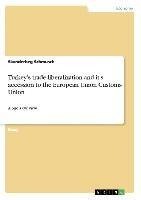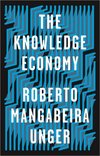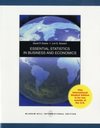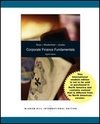
-
 Anglický jazyk
Anglický jazyk
Turkey's trade liberalization and it's accession to the European Union Customs Union
Autor: Skanderbeg Schmusch
Essay from the year 2008 in the subject Business economics - Economic Policy, grade: 1.3, Marmara University (Department of Economics), course: Turkish Economy, 22 entries in the bibliography, language: English, abstract: People living in Turkey might have... Viac o knihe
Na objednávku
17.55 €
bežná cena: 19.50 €
O knihe
Essay from the year 2008 in the subject Business economics - Economic Policy, grade: 1.3, Marmara University (Department of Economics), course: Turkish Economy, 22 entries in the bibliography, language: English, abstract: People living in Turkey might have very well experienced it, people, like the author, looking at Turkey as an independant observer, might not know it too much. Since it's foundation in 1923, Turkey witnessed turbulent times almost thoroughgoing the 20th Century. Political as well as economical wise. Economically the climax was reached when Turkey felt into international insolvency in 1978. From then on, although attempts were made in earlier years too, large reforms were introduced. In this paper we will look at the Turkey's trade policy before and after the liberalization reforms of the 1980's.
Trade liberalization mostly implies less intervention by the government in the
traded goods sectors. But whether a less interventionist trade regime results in a less distorted, more open and outward oriented economy will depend on the characteristics of the pre- and post-reform trade and exchange rate regimes. This paper aims to present a general survey about Turkish trade policy: a bird's eye view. The author therefore abstains from generating a model and test the impact of the reforms on one single industry. Instead, such regression results are rather resorted to other studies, in order to generate an appropriate picture of the trade liberalization as a
whole without getting stucked into detail too much on the one hand, and without
staying out of detail too much on the other hand. The rst section outlines the
economical background of Turkey from the pre-1980-reform period at rst and con-
tinues with a presentation of the reforms imposed from 1980 onwards. It draws a
historical picture as well as it points out the main impacts on the export and import pattern of Turkey's foreign trade. The following section deals with Turkey's accession of the Customs Union of the European Union in 1996. There is economical and politacal weight ascribed to the accesion as it is seen to be a major step towards a full membership of the European Union for Turkey. After outdrawing the historical backgrounds of the accesion, we will look at its impact on trade for several sectors, mainly by examining a study done by De Santis in 2001. Another section shows some empirical observations on trade indicators and their change in respect to the liberalization reforms.
- Vydavateľstvo: GRIN Verlag
- Rok vydania: 2008
- Formát: Paperback
- Rozmer: 210 x 148 mm
- Jazyk: Anglický jazyk
- ISBN: 9783640182626












